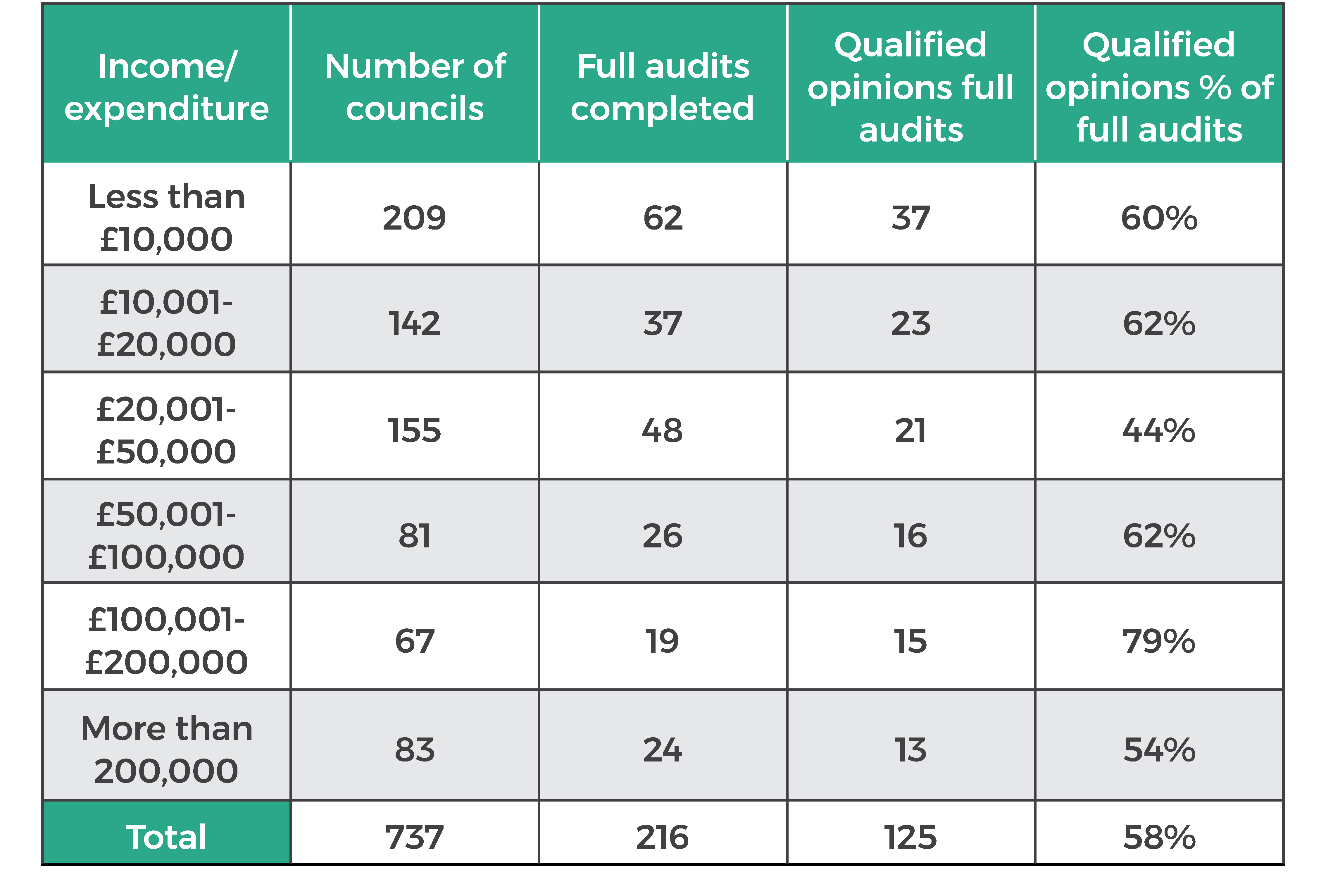Community and town councils are the closest tier of government (where one exists) to the people. They vary substantially in size and budget, with most having £50,000 or less to spend annually. They provide a range of local services, from community events and park maintenance to running local libraries, cafes and community centres to name a few. Audit Wales recently reported that the sector as a whole raised over £245 million between 2019-20 and 2022-23, made up mostly of the precept (a charge on council tax payers), charging for specific services and by claiming grants.
However, the Senedd’s Local Government and Housing Committee heard that around 30% of community and town councils provide annual accounts that contain basic “arithmetical errors”. Many more councils fail to meet their statutory responsibilities by making “fairly basic procedural errors”.
Both the Committee, and the Welsh Government’s Task and Finish Group on the Democratic Health of Community Councils have recently made recommendations to tackle many of the challenges to ensure the future sustainability of the sector. It is now for the Welsh Government, in partnership with the local government sector and other key stakeholders to put some of these recommendations into action. The Senedd will debate the Committee’s report on 21 May 2025.
Is the audit regime “too rigid”?
Good governance is essential for the effective running of any organisation. For democratic institutions however, it is a legal requirement to safeguard, properly account for and use public money. Ultimately, this is intended to build trust and accountability among the people they represent.
Evidence seen by the Committee shows that during 2022-23, around half of all community councils received a qualified audit opinion from the Auditor General for Wales for failing to comply with statutory responsibilities. In other words, these community councils either failed to provide the required information for audit, or provided inaccurate information. It appears this is a sector wide issue, and not isolated to smaller or less well-resourced community councils.
In fact, Audit Wales’ analysis shows that councils with budgets of between £100,000 to £200,000 are significantly more likely to receive a qualified opinion on a full audit (79%) than councils with budgets of £20,000 or less (60/62%).
Qualified audit opinions on full audits 2022-23

Source: Audit Wales analysis of 2022-23 audit outcomes. Each council will receive a limited defined procedures audit in two of the three years and a more in-depth examination in the third year (full audit).
However, the evidence suggests broad consensus that the current audit regime is “too rigid” for the sector. One Voice Wales, the national representative body for the sector stated that for smaller councils in particular, the audit regime is “disproportionate for the element of financial risk actually involved”.
The Auditor General for Wales acknowledged there’s a the case for “revisiting the system”. The Committee recommended that the Welsh Government, alongside the sector and the Auditor General should co-produce a “new bespoke audit system for town and community councils in Wales”. The Welsh Government was receptive to the recommendation, noting it would work with partners to “consider what a revised system might look like”.
Calls for compulsory Code of Conduct training for elected members
Another key strand of the Committee’s inquiry was councillor behaviour. The Committee heard that, at times, this doesn’t match expectations for those in public office. Community councillors in Wales (whether elected or co-opted to a council)are required to sign up to the Code of Conduct for local authority members on acceptance of office. The Code is a set of principles and obligations to guide members to maintain appropriate standards of conduct when serving their communities.
The Public Services Ombudsman for Wales investigates complaints about community councillor behaviour. The Ombudsman stressed in her evidence that the proportion of complaints, within the overall context of the sector, is low. However, she told the Committee that complaints about community councillors had increased by 42% over the past five years. Complaints about equality and respect account for a significant proportion of the Ombudsman’s workload.
Despite requirements to abide by the Code of Conduct, there is currently no obligation on community councillors to undertake training on it. This despite readily available training via One Voice Wales, which is supported by Welsh Government bursaries for its delivery. The Committee heard overwhelming evidence that “supported the introduction of mandating code of conduct training”, and called on the Welsh Government to explore the options. The Welsh Government agreed there was “value in further action” on this.
Of course, providing local council clerks with the tools and support to deal with disputes locally could prevent issues escalating in the first place. The Committee wants to see local authorities and professional bodies such as the Society of Local Council Clerks make it easier to access such support. And while the Committee acknowledges the pressures on local authority resources, it saw:
merit in exploring mechanisms to enable the town and community council sector to access support from principal authority monitoring officers and HR services.
The Welsh Government agreed with this finding, but asserted that in practice, it was for the local government sector to facilitate this through its Memorandum of Understanding between One Voice Wales and the WLGA.
A need to accelerate IT infrastructure in the sector
In a sector where around 70% of councils have budgets of £50,000 or less, it came as no surprise that some lack the required ‘digital’ capacity. But the Committee found that not having capacity to take advantage of ‘digital’ was the least of the sector’s concerns, with many councils lacking the most basic IT provision, such as a corporate email address for their clerk. The use of personal email addresses for official council business, noted the Committee, raised “serious concerns” about compliance with data legislation and audit trails when staff leave.
The Committee also heard that IT infrastructure is hampering local councils from holding hybrid meetings. With a significant proportion of community council meetings conducted in small, often rural community venues, basic hybrid infrastructure and hardware is a significant problem.
During a previous inquiry on Diversity in Local Government, the Committee acknowledged the challenges that some town and community councils face, including “financial pressures of upgrading facilities”. This, it said at the time, could be “burdensome to those in receipt of lower precepts”. The lack of hybrid infrastructure could also impact on the diversity of candidates, with the Committee stating that the:
ability to attend meetings remotely is a significant tool in attracting a wider range of candidates to stand for election.
The Welsh Government says it provided funding of up to £300,000 to the sector to support progress on its Digital Health Action Plan. This includes exploring opportunities for sharing IT support between local authorities and community councils. This is certainly something the Committee was eager to see, noting there should be an “expectation that local authorities provide IT support” to local councils via service level agreements.
What next for community and town councils?
There are a multitude of challenges to address for community and town councils, and the sector is well aware of these. Many are functional in nature, and with sufficient resource and support could be addressed relatively quickly.
However, other challenges are more deeply rooted, requiring longer-term intervention and funding, such as professionalising the clerking role and improving the conduct of members and staff. With a significant proportion of clerks working only a few hours a week, ensuring they have the right skills and qualifications to deal with the challenges ahead will be a key area for all partners to address.
You’ll be able to watch the debate on the Committee’s report live on Senedd TV on Wednesday 21 May, or view the transcript around 24 hours later.
Article by Osian Bowyer, Senedd Research, Welsh Parliament






